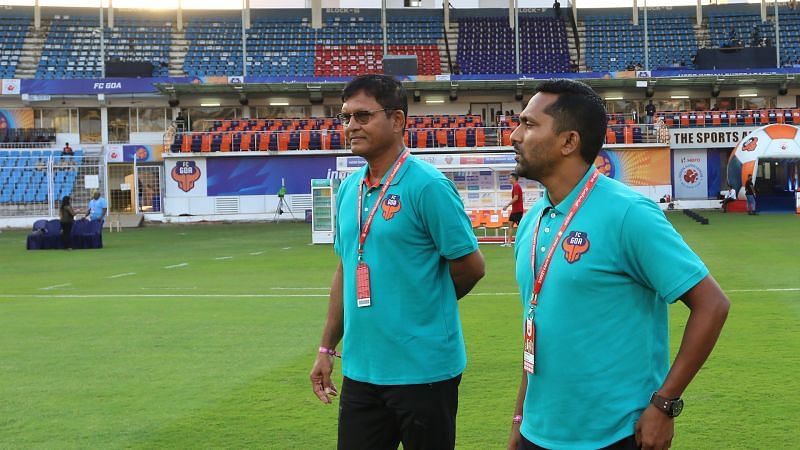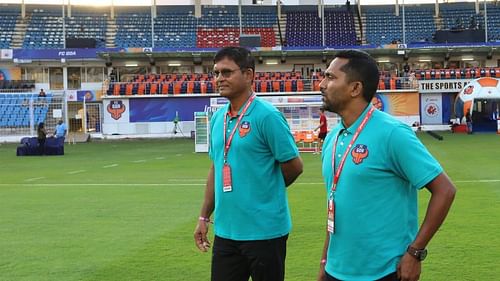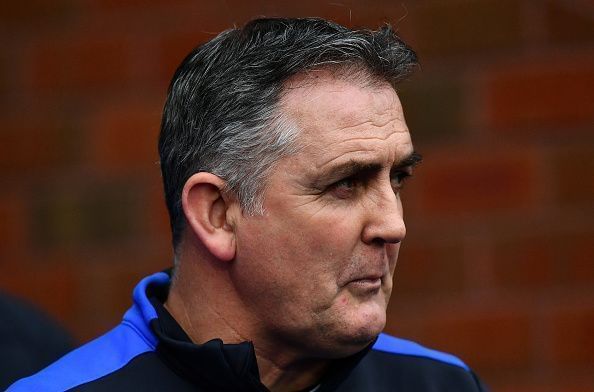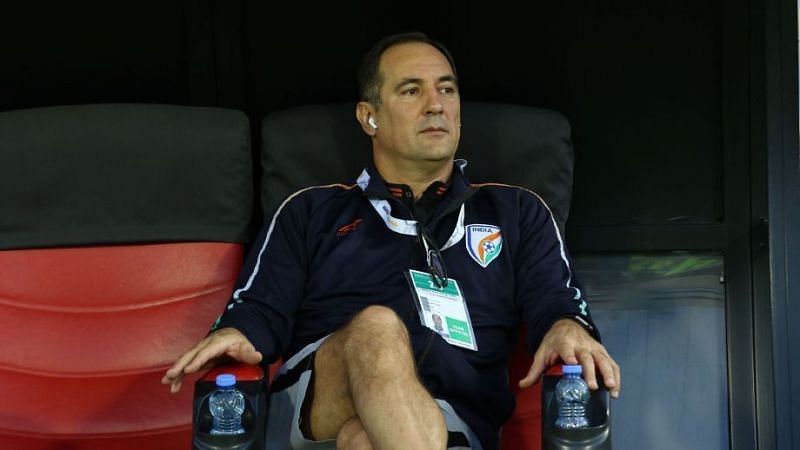
ISL: Are Indian coaches the final piece in India's footballing jigsaw?

At the start of February 2020, FC Goa represented a side that had irresistibly swept aside all challenges kept in front of it and had cast itself as overwhelming favourites to end their thirst for an ISL crown.
At that juncture though, an alleged moment of misunderstanding meant that the club had to endure a slightly rocky period off the pitch, wherein Sergio Lobera’s services were dispensed with. More dishearteningly though, the boot brought back memories of unwarranted factors indulging in the working of a club.
However, despite the departure of the Spaniard, several of the Gaurs’ faithful felt quietly confident of the niche they were about to carve for themselves. And, to add another layer of accomplishment, FC Goa now rejoiced at the prospect of scaling unparalleled heights under two of their very own, namely Clifford Miranda and Derrick Perreira.
Unfortunately, that particular narrative failed to transpire as they were trumped by Chennaiyin FC 6-5 in the semi-final, although they resoundingly won the second leg of that tie 4-2.
Yet, despite the outcome, the courage and valour showcased by the side under the tutelage of two interim coaches painted a much more refreshing picture.
Rather fittingly, a few days post the culmination of the 2019-20 campaign, there have been numerous reports doing the rounds, stating that Indians of the ilk of Clifford and Derrick could now be handed the reins on a permanent basis from the next term.
Thus, it inevitably leads one to question whether the said move would be beneficial for Indian football in the long run and if it could indeed have a bearing on the current landscape, considering the league has never seen a local head coach, despite being six seasons old.
Though there are a myriad of reasons that could eventually decide the success of the aforementioned move, there are early indications to suggest that it could be a step in the right direction.
For years, the country has been labelled a nation with enormous potential yet one that has consistently failed to translate the touted talent into something a tad more tangible. However, things took a turn for the better courtesy the inception of the ISL, meaning that budding footballers suddenly had a prospective professional career ahead of them.
The above, coupled with the novel idea of the league allowed Indians to rub shoulders with those boasting greater footballing pedigree, thereby enabling the former to pick the latter’s brains and improve themselves.
Additionally, the commercial nature of the competition brought on board countless foreign coaches, with each possessing a different vision of playing the game. In turn, that added several strings to the tactical bow of the ISL and helped players adapt to the various demands of the sport.
While the skills displayed in the tournament left a bit to be desired at the start, it has gradually improved and currently, it stands at a pedestal that has never been envisioned, let alone seen in India.
Unsurprisingly, the footballing ideals, the planning and more importantly, the execution has been lauded, with many quipping that Indian football is on the correct path to unlocking its potential.
Though there is hardly denying the impact overseas coaches have had on players, one reckons that the presence of home-grown managers could ultimately propel the country into the higher echelons it craves.
Firstly, akin to what happened with players in 2013 and 2014, the sight of Indians being installed at the helm would prompt thousands of aspiring coaches to pursue a career and pull out all the stops to make a mark professionally.

In addition, it would significantly bolster the ecosystem existing in the nation currently. At the moment, there have been murmurs of how the coaching structure at the lower levels could be the only thing holding India back. In fact, Owen Coyle, in a previous interview with Sportskeeda, had highlighted those facets, stating,
For people from England, football is second nature to us and the coaching is of very high standard. With all due respect to the coaching structure in India, I feel if they had the same kind of coaching in the formative years, India would’ve had a great team. Also, I feel that if coaches can get more time on the training ground, it would be very helpful for the players.
Though the Irishman chalked out how the system could be made better for the players, the same goes for coaches. To put things into perspective, if Indians were introduced at the formative stages, it would help alleviate the problem of finding the adequate numbers to cater to the large pool of footballers.
Furthermore, the exposure provided to the Indian coaches would equip them better to handle the challenges that lay ahead, thereby enabling them to give a good account of themselves whenever called upon.
Most tellingly though, the appointment of local managers would help improve the standards of the local players, in light of the enhanced communication that the former would bring to the fore. And, in the process, it would enable the nation to establish a footballing identity for itself.
Across the globe, a major chunk of the footballing powerhouses can claim to have a top-notch grassroots structure, wherein they primarily rely on their own resources to develop the players coming through the ranks. Countries such as Argentina, Brazil, England, Germany, Italy and Spain testify the above to the tee.
So far, the coaches and managers from abroad have portrayed exemplary commitment and determination to be active members on the nation’s journey to its footballing zenith. Yet, one feels that the time might be ripe to start integrating Indians into that particular environment.

To put things into further perspective, Igor Stimac, the Indian Men’s Football Team manager, openly criticized the current number of overseas players in the ISL and the I-League, commenting,
My suggestion for top tier (league) in the country is to follow AFC rule of 3+1, that's the basic rule for number of foreign players. It's not strange that that most successful Asian countries are following that rule and that is why they are successful.
Thus, it isn’t a stretch to believe that the same would apply to coaches as well.
Fortunately, to that end, the AIFF has started emphasizing the need for better coaches and has outlined programs that would help assimilate the raw footballing knowledge systematically.
However, it is also imperative that India doesn’t get too carried away, considering the ground it has had to make up, owing to the ordinary infrastructure and finances in the pre-ISL era.
Though India aspires to find itself among the upper trenches of Asian football, it also needs to appreciate the process and not try mechanisms that could bear short-term fruit but could end up being counter-productive in the larger scheme of things.
Having said that though, it seems incredibly far-fetched that the likes of Chennaiyin FC, Mumbai City FC or NorthEast United FC would want to venture down that esplanade, although FC Goa could prove the anomaly.
Yet, evidence suggests that if ISL clubs are indeed brave and showcase the requisite foresight, it could pave the way for an unparalleled growth of Indian football. While it is understandable that such coaches would not crop up overnight, one reckons that it could be the way forward.
In truth, for a country such as India, it’s just ludicrous to believe that their resources can’t hold their own when push comes to shove. And, rather ironically, the sacking of Lobera, which smacked of off-field gimmicks, could now morph into the watershed moment for Indian football.
After all, for quite a while, the nation has flirted with the idea of local coaches. Yet, it took an unceremonious departure and a subsequent coming of age of two individuals for thousands to truly believe in that revolution.
Football really is crazy sometimes, isn’t it?